Indigenous Women Forge Strategic Alliances to Defend Their Territories and Lives
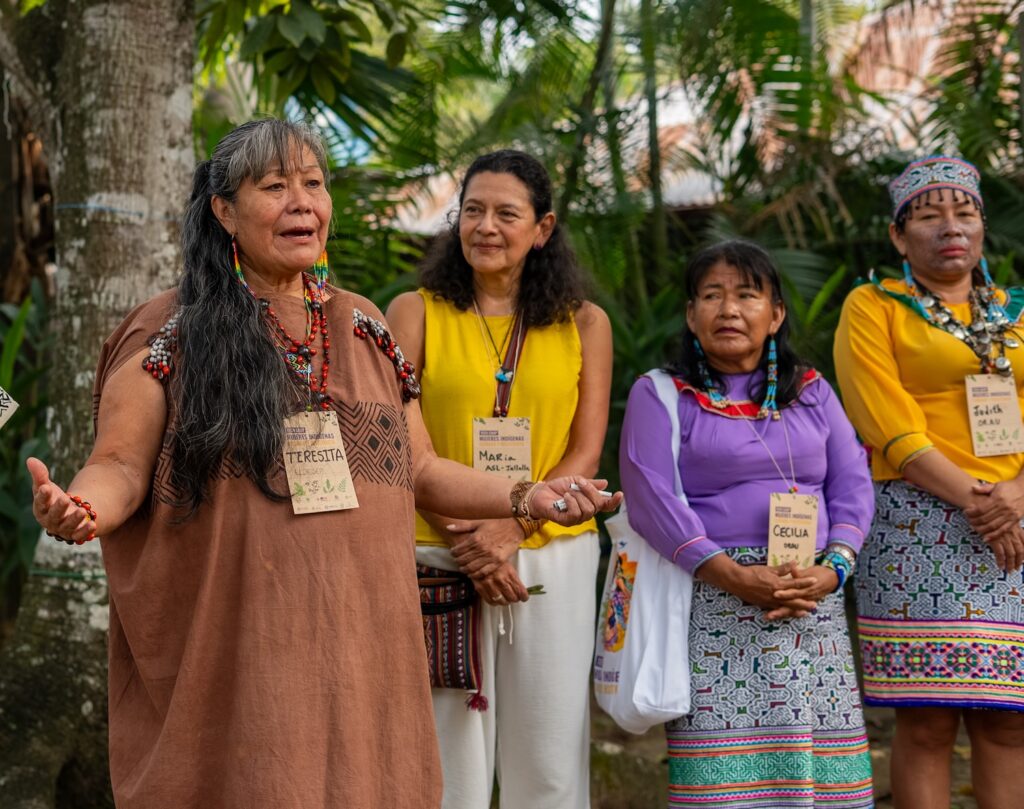
Earlier this month, around 70 participants, including 50 Indigenous women leaders from across the Peruvian and Ecuadorian Amazon, gathered in Pucallpa, Peru, for “Indigenous Women: Care and Resistance,” a two-day TechCamp aimed at fostering collaboration and addressing the pressing threats to their territories, rights, and communities.
A Rainforest Without Rain: Communities in the Amazon Grapple with the Impacts of Extreme Drought and Fires
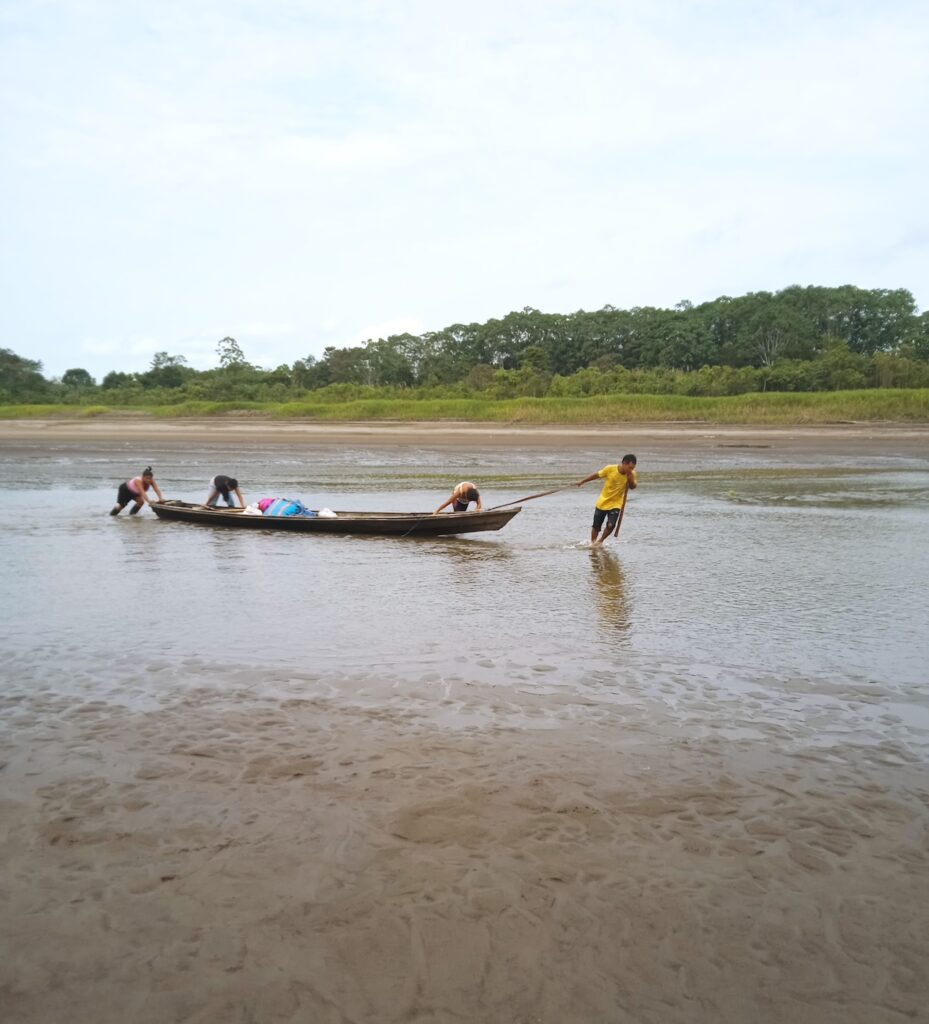
This drought is the worst in four decades and is contributing to an alarming number of fires this year raging across multiple regions throughout the Amazon and posing a threat to Indigenous and local communities and some of the world’s most vital ecosystems.
Uniting for Wildlife: Highlights from a ‘TechCamp’ Workshop in the Peruvian Amazon
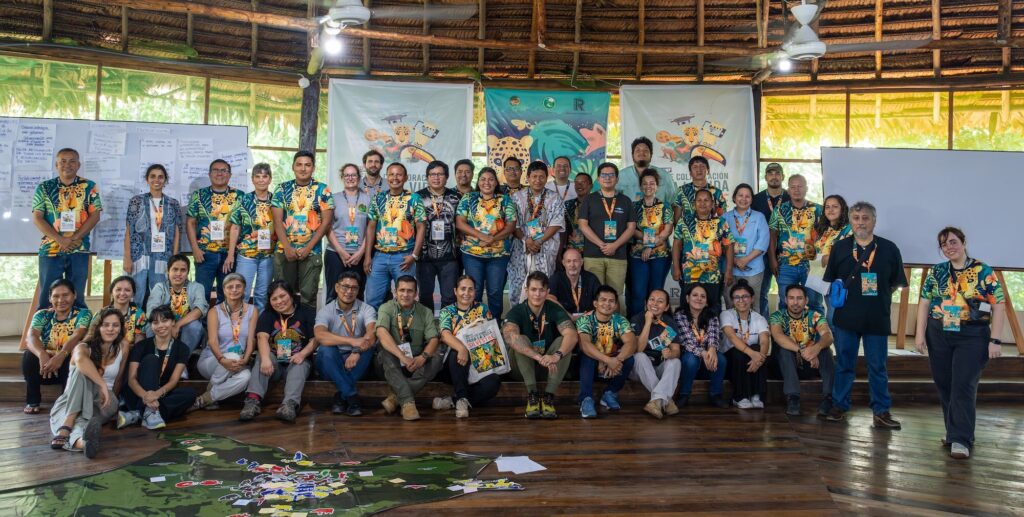
The city of Iquitos, Peru, hosted an event dedicated to the protection of Amazonian wildlife. Organized by Rainforest Foundation US, the Regional Organization of Indigenous Peoples of the East (ORPIO), and the Regional Organization AIDESEP Ucayali (ORAU), and with financial support from the U.S. Embassy in Peru and the World Resources Institute (WRI), the event brought together a diverse group of 55 participants.
The Ancestral Forest: How Indigenous Peoples Transformed the Amazon into a Vast Garden
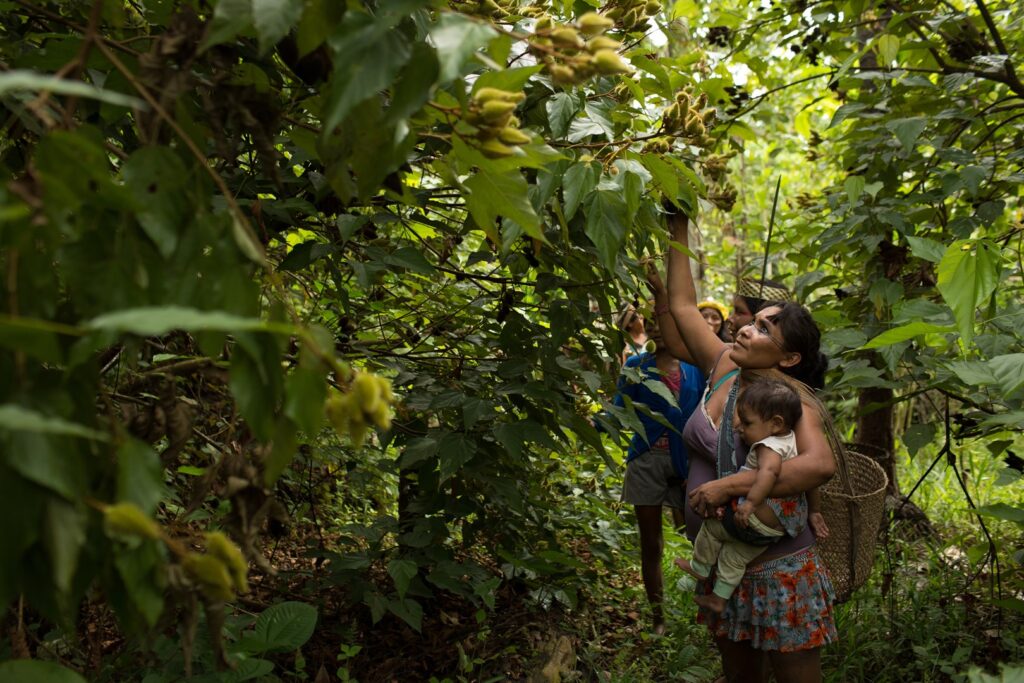
For centuries, many people in the Western world believed the Amazon to be an unpopulated and untouched forest. This has never been entirely true. The Amazon has been managed by Indigenous peoples for thousands of years. On this International Day of the World’s Indigenous Peoples, explore how—through the creation of fertile soils and selecting and cultivating various plant and tree species over millennia—Indigenous peoples have transformed the Amazon rainforest into the most biodiverse ecosystem on Earth.
Cinema on the River: A Floating Film Festival in the Heart of the Peruvian Amazon
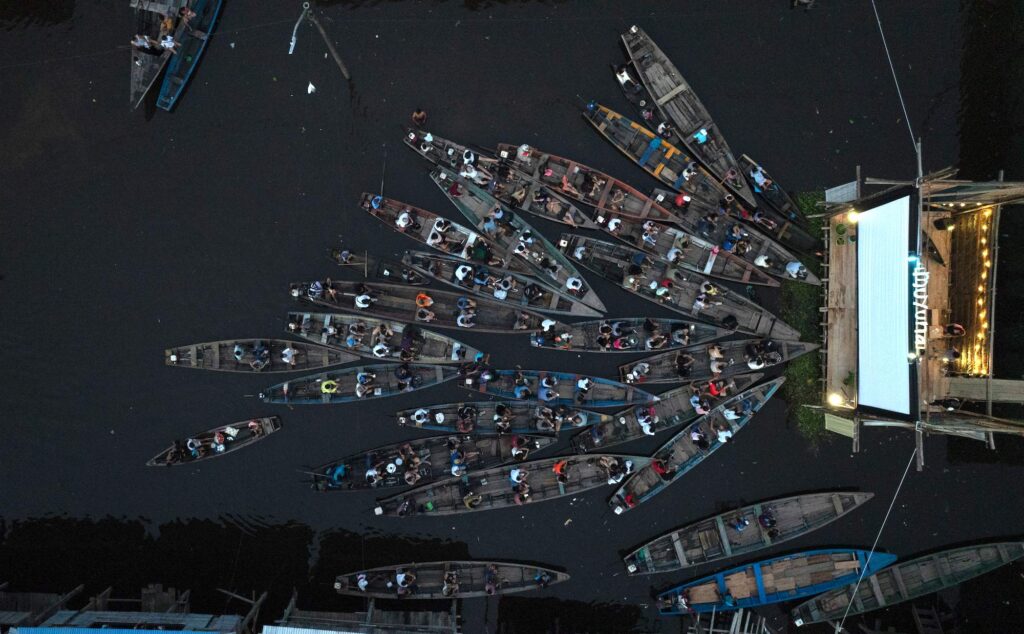
The Muyuna Floating Film Festival showcased a unique floating screen, bringing films directly to riverside communities in the Peruvian Amazon. During the festival, Rainforest Foundation US supported an Indigenous Cinema Workshop, emphasizing the urgent need to understand these issues from the perspective of Indigenous peoples and local communities.
A Landmark Victory: 20 Indigenous Communities in Peruvian Amazon Secure Land Titles
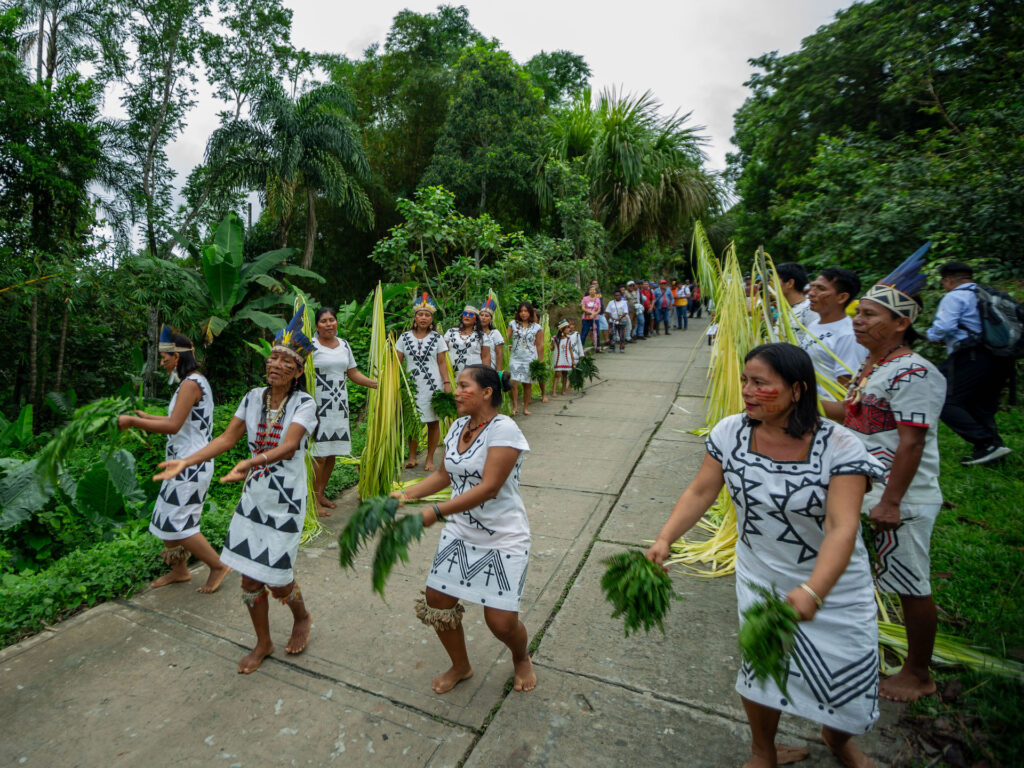
RFUS celebrates a major victory as 20 Indigenous communities in the Peruvian Amazon received land titles. Land titles are the most effective way to reduce deforestation in Indigenous peoples’ territory, resulting in a 66% reduction in forest cover loss.
Deforestation in Brazil’s Amazonian Indigenous lands decreased by 42%, reaching a six-year low
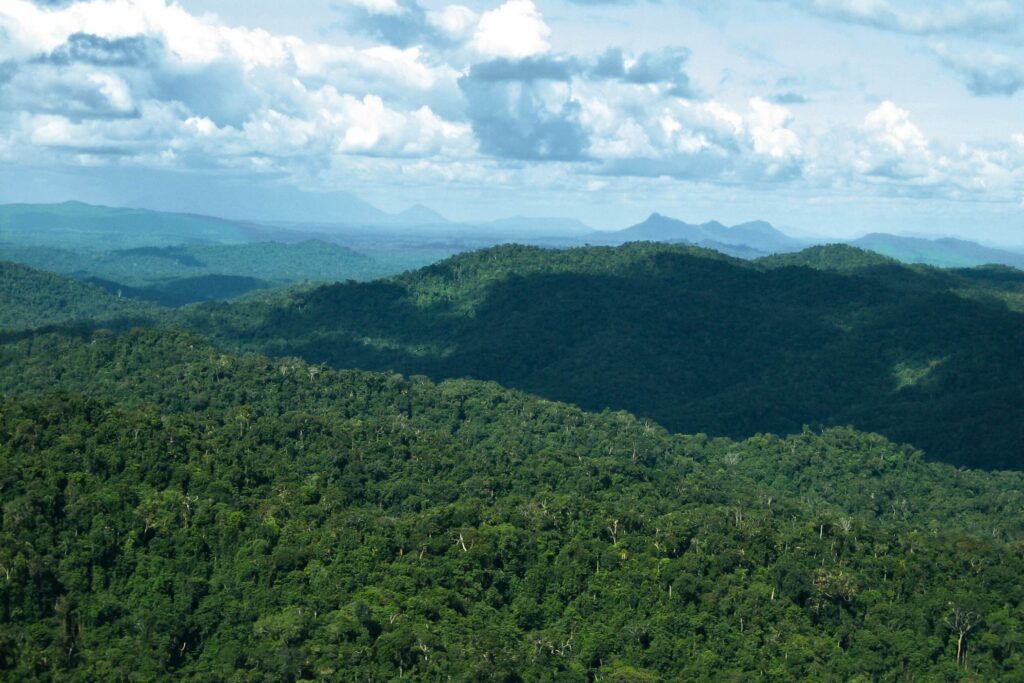
Indigenous peoples’ lands in the Amazon experienced a 42% decrease in deforestation between August 2023 and March 2024, according to a report by the Brazilian organization Amazon Institute of People and the Environment (Imazon). This is the lowest amount of destruction recorded within these territories since 2018.
Mesoamerican Community Leaders Point the Way Toward a High-Integrity Carbon Market
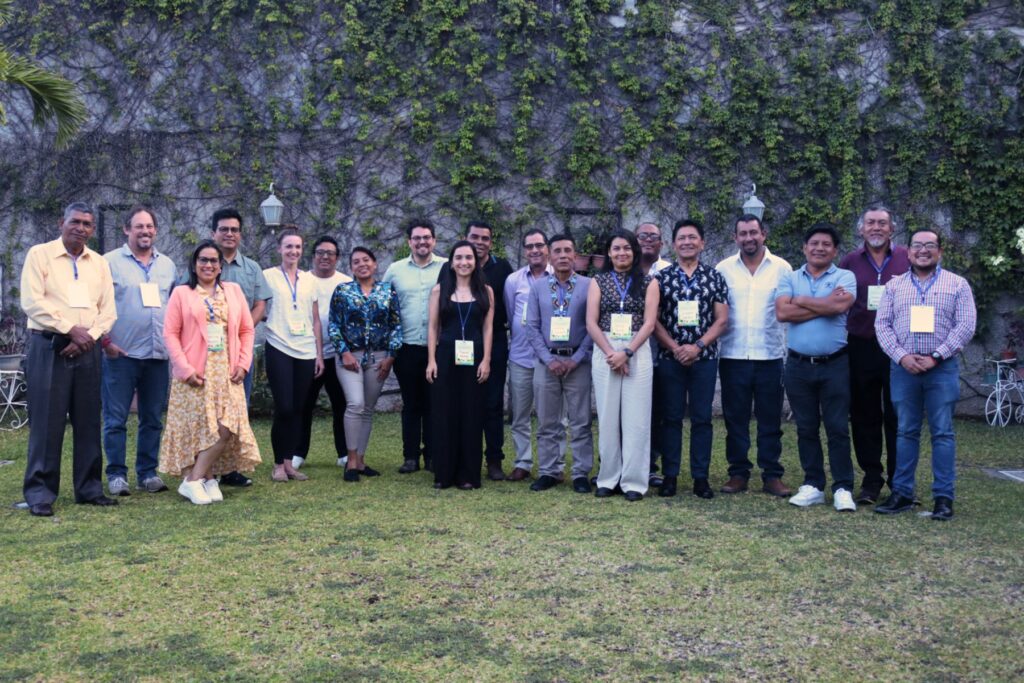
The Mesoamerican Alliance of Peoples and Forests (AMPB), in collaboration with Rainforest Foundation US and Fundación PRISMA, convened in El Salvador to shape a united vision for strengthening the integrity of carbon markets in the region.
RFUS Joins Indigenous Leaders to Address Climate Challenges and Community Rights in Roraima, Brazil
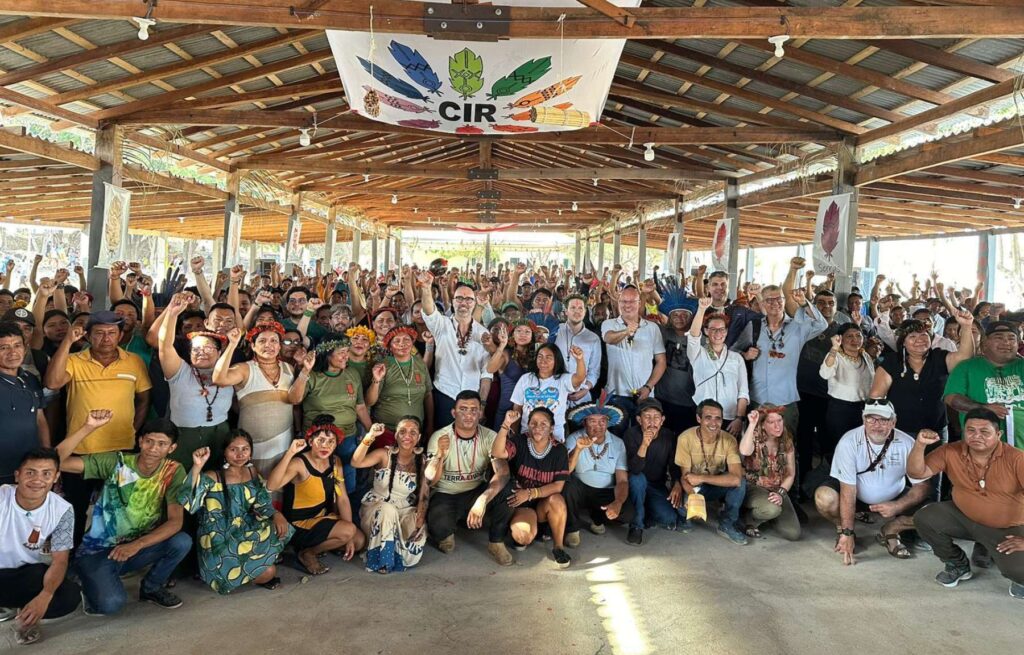
We have expanded our programming in Brazil to focus on territorial defense, Indigenous governance, and territorial control through community-led forest patrolling. Learn more about our recent visit to Brazil, where we strengthened ties with partners in Roraima, including the Indigenous Council of Roraima’s (CIR), Hutukara – Yanomami Association, Seduume, and Wai-Wai organizations.
Indigenous organizations are building strong foundations to secure their rights and territories
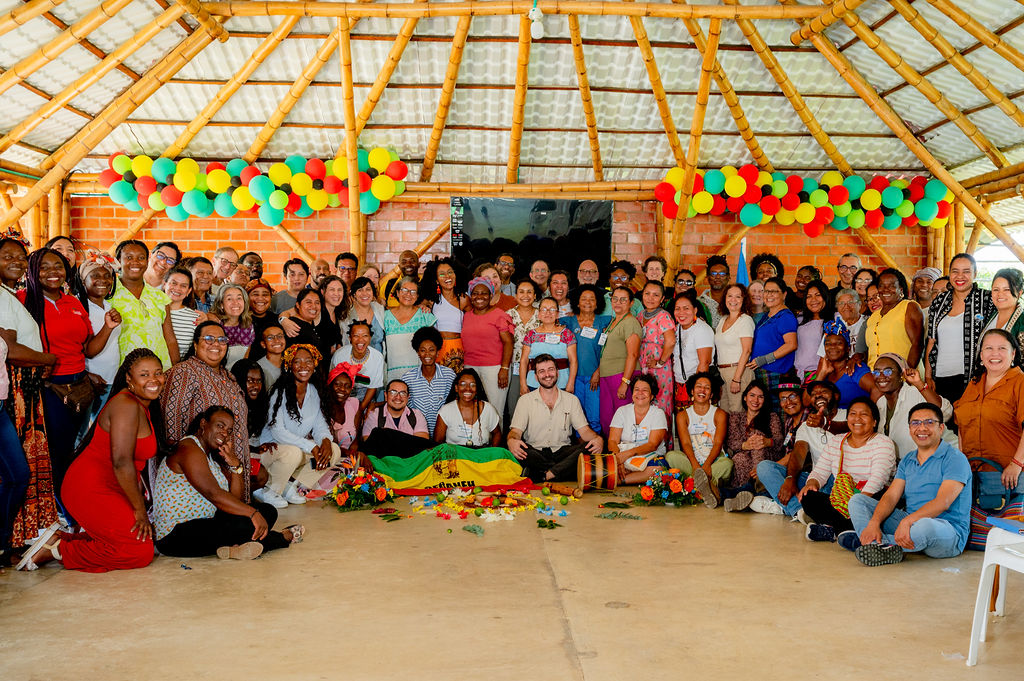
In a world where the voices of Indigenous, Afro-descendant, and traditional communities are often sidelined, it’s imperative to create spaces that prioritize these perspectives to foster meaningful shifts within the funding ecosystem. In February 2024, Entre Povos—an initiative whose purpose is to strengthen institutions and advance its member organizations’ rights to good lives—organized a gathering in Colombia to promote dialogue, exchange, and learning among these communities.



